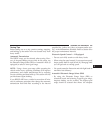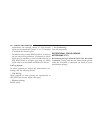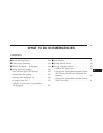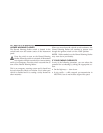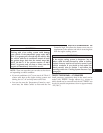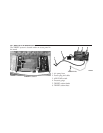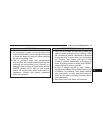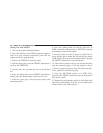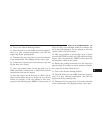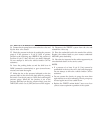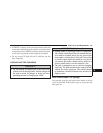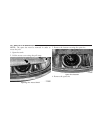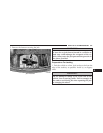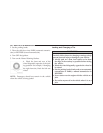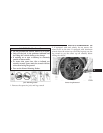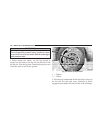
13. Turn on the Hazard Warning Flashers.
14. Move the shift lever into PARK (automatic transmis-
sion) or in gear (manual transmission), turn OFF the
engine and set the parking brake.
15. Disconnect the air pump hose 1 from the underside
of the sealant bottle 5 by flipping the hose valve open.
16. Connect the air pump hose valve to the tire valve and
flip the hose valve closed.
17. Leave the parking brake set and the shift lever in
PARK (automatic transmission) or NEUTRAL (manual
transmission) and start the engine.
18. Press the switch 3 on the air pump to I (ON). The air
pump should inflate the tire to at least 26 psi (1.8 bar)
within five minutes. If the tire inflates to this level,
proceed to the following step. NOTE: If a tire pressure of
26 psi (1.8 bar) is not obtained within five minutes, the
tire is too badly damaged. Do not attempt to drive the
vehicle further. Call for assistance.
19. With a tire pressure of no less than 26 psi (1.8 bar)
press the AIR PUMP switch 3 to 0 (OFF) and turn off the
engine. Then, disconnect the TIREFIT system from the
tire and place it back in the vehicle.
20. Release the parking brake and drive the vehicle for
approximately 10 minutes to ensure optimum distribu-
tion of the tire sealant within the tire.
21. Turn on the Hazard Warning flashers.
22. Move the shift lever into PARK (automatic transmis-
sion) or in gear (manual transmission), turn OFF the
engine and set the parking brake.
23. Disconnect the air pump hose 1 from the underside
of the sealant bottle 5 by flipping the hose valve open.
6
WHAT TO DO IN EMERGENCIES 343



